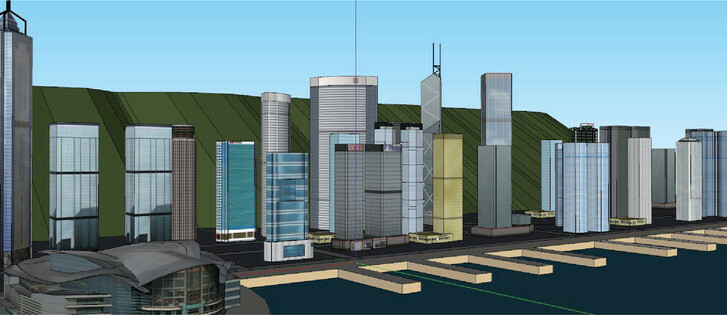
建築信息模擬 專業文憑
(只提供英文版本)
Programme Curriculum
|
Semester & Theme |
Module Title |
Type |
QF Level |
QF Credit |
|
Sem 1: BIM Principles & Practices |
Core |
5 |
12 |
|
|
Core |
5 |
12 |
||
|
Sem 2: BIM Skills & Applications |
Elective |
5 |
12 |
|
|
Elective |
5 |
12 |
||
|
Elective |
5 |
12 |
||
|
Sem 3: BIM Implementation & Capstone |
Core |
5 |
12 |
|
|
Core |
5 |
12 |
||
| Total 6 modules (3 core, 2 elective, 1 capstone): | 72 | |||
* Each student should select two out of the three elective modules.
This module introduces the basic concepts and essential background of building information modelling (BIM) to students of related professional disciplines. It extends the knowledge in engineering drawing and computer-aided design (CAD) in construction projects, and develop skills necessary for understanding virtual design and construction (VDC). Students will learn the conceptual background of BIM and apply the principles for the various aspects of BIM.
This module aims to provide students with the in-depth knowledge and understanding of building information modelling (BIM) in practice. It will examine the roles and functions of different professionals in BIM workflow including architecture, civil and structural engineering, building services engineering, quantity surveying and facility management. It will also explain the technical and strategic skills for BIM project planning in different professional disciplines and technical areas.
SBM5103 BIM Project Execution & Management
This module introduces the basic principles, major considerations and skills for BIM project execution and management. It also examines the knowledge and strategic skills to apply BIM for construction management functions at the site or building level. It explains clearly the goals, procedure and operational steps for BIM implementation, and develop skills necessary for successful and effective BIM project execution. It will develop students’ skills to evaluate a project’s constructability, improve cost reliability, visualize construction processes through 4D simulation and clash detection, and increase coordination between stakeholders throughout the design and construction process.
SBM5104 BIM Visualization & 3D Modelling
This module introduces the computer visualization techniques for BIM and 3D modelling applied in the building and construction industry. It explains the principles and technologies commonly used for BIM visualization tasks in order to provide students opportunity to understand the current development and appreciate the latest visualization techniques. Through demonstration of selected BIM visualization software and tools, students will learn the basic skills of advanced visualization and 3D modelling for the various aspects of BIM.
SBM5105 BIM for Cost & Facility Management
This module introduces the basic concepts of cost management in construction and examines the key concepts and knowledge of BIM as a lifecycle asset and facility management approach. It provides the essential background knowledge for understanding the integration of 5D BIM and cost management. It also introduces the basic principles of asset and facility management and explain how BIM could benefit the building owners and facility managers.
SBM5106 BIM for MEP & Sustainable Building
This module examines the critical techniques for using BIM in MEP (mechanical, electrical and plumbing) design and presents the basic concepts of green BIM for sustainable building design and building performance analysis. It will discuss the importance of BIM for MEP coordination and design management. It will also explain the importance of sustainability in building & construction projects and highlight the common techniques and key considerations for achieving sustainable buildings using BIM technology.
This module aims to provide a major capstone project for students to develop the ability and skills for BIM project planning, execution and implementation. It also provides an opportunity for students to develop and consolidate comprehensive professional knowledge and strategic skills on BIM technology innovation and its holistic application. Students will apply the knowledge that they have learnt previously to work independently under realistic working environment related to BIM projects.
Students have to undertake critical analysis to formulate solutions for problems in different scenarios and apply professional knowledge and practices of BIM. As most of the BIM problems are complex and inter-disciplinary in nature, students should make significant use of the problem-solving skills in a range of technical, professional and management functions. They will be required to exercise appropriate judgment and innovation in the planning, design, technical and management functions related to BIM project planning and implementation.
